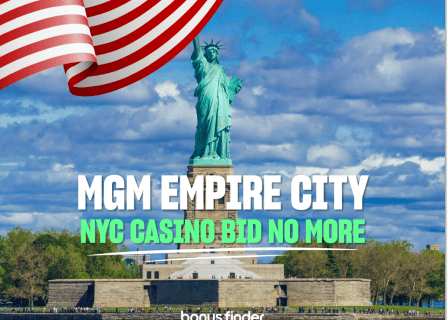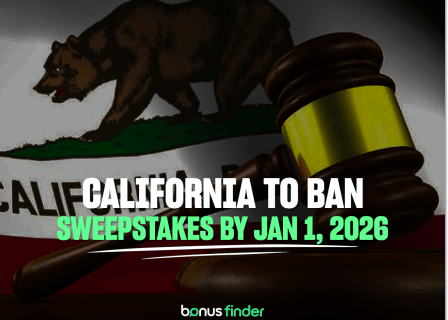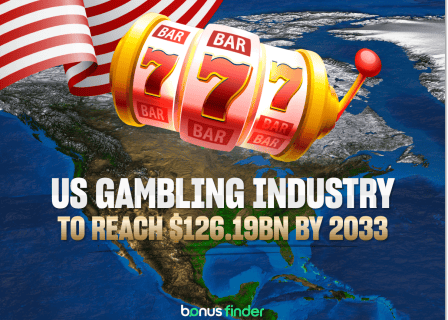Legal sports betting in the US in 2025: Everything you need to know
Sports betting has hit a home run across the US since the Supreme Court overturned The Professional and Amateur Sports Protection Act in 2018. Ever since, the US has seen a strong evolution when it comes to sports betting – with US online casinos progressing in the same fashion.
Now, as of June 2025, with 39 states on board – as well as Washington D.C. – the sports betting industry is booming. Each state has carved out its own approach, balancing the lure of new revenue, regulatory challenges and local attitudes.
Some are seizing massive market opportunities, while others are still navigating through a maze of legal, religious and cultural barriers. However with residents visiting neighboring states to gamble, more and more states find themselves unlocking to help thicken their tax wallet.
The sports betting landscape is as dynamic as it is unpredictable.
Where sports betting stands today in the US: A nation divided
Sports gambling in the US is a patchwork of regulations with the majority of states offering both retail and online sports betting; using approved gambling apps like DraftKings or FanDuel as well as physical sportsbooks.
However, three states, Tennessee, Vermont and Wyoming, only allow online sports betting, no retail betting; and eight other states, including Mississippi and Montana, only allow retail betting for sports wagers.
There are 11 states, including Alabama, California and Texas, that are still holding on and don’t allow betting at all. This begs the question: why are some states so eager to embrace sports betting while others hold back?
The answer is based on a combination of revenue potential, political will and attitudes towards gambling by the general public. Some states, such as New Jersey and Pennsylvania, which generate billions of dollars in betting handle each year, represent an economic bonanza.
New Jersey is frequently the national leader in monthly handle, and has proven that a lot of betting can be accomplished, and a lot of tax revenue can be gained, with virtually no restrictions.
On the other hand, states like Utah have entrenched so much of their religious motivations surrounding gambling and codified in their criminal code that any legalization will take a long time to evolve – even if residents wanted it.
States leading the US sports betting industry
Despite 40 states permitting some form of sports betting, there are definitely some huge frontrunners. The leaders of the pack are both a mix of new and old sports betting jurisdictions such as New Jersey and North Carolina.
New Jersey and New York: The heavyweights
New Jersey remains the gold standard, boasting over two dozen online sportsbooks and a regulatory framework that allows betting on nearly everything except in-state college teams.
New York, joining the online fray in 2022, has quickly caught up, with operators like FanDuel and BetMGM capitalizing on its massive population.
Its proximity to New York City and early adoption post-PASPA have made it a betting powerhouse. However, restrictions on in-state college betting and a high tax rate temper its potential, as Resorts World Bet ceases its sports betting operations in New York.
Missouri: A ballot breakthrough
Missouri will be a state to watch in 2025. After many years of legislative gridlock, driven largely by Senator Denny Hoskins tying sports betting to video lottery terminals, voters passed a constitutional amendment in November 2024.
It secured its place on the ballot having provided 340,000 signatures. The measure allows online and retail betting to start in late 2025.
The Missouri Gaming Commission are now working on regulations and operators like FanDuel and DraftKings, who paid for the signature drive, are poised to dominate the market.
This was a big win for Missouri insiders and is also representative of a growing trend- when legislatures don’t move, voters can.
North Carolina: A new player
North Carolina expanded significantly when it launched online betting in March 2024, after the state passed House Bill 347.
There are eight operators in the market, the two of most notoriety would be bet365 and ESPN BET. The state has certainly become the main southeastern US hub for betting.
There are no restrictions on in-state college teams for now, which is good for bettors, but the attempt of suggested legislation to ban prop bets on college teams shows that the conversation around responsible gambling is still a work in progress.
The federal angle: The SAFE Bet Act
On a national level, the SAFE Bet Act, introduced in September of 2024 by Representative Paul Tonko and Senator Richard Blumenthal, hopes to change the industry.
With respect to affordability, advertising and AI, the legislation proposes to ban prop bets on college students and that is already in the works in states like North Carolina.
Federal regulation would alleviate jumbled regulations; however, it would complicate independence and lead to an inevitable fight whereby Washington dictates the state based industry either directly or indirectly.
The bigger picture: What’s at stake?
The US sports betting market has exploded since it was legalized, bringing millions of dollars into state tax coffers.
States including Colorado and Michigan have shown the vast potential for revenue in open betting markets and multiple operators, but the regulatory environment remains, quite frankly, a mess.
Bettors can visit their state’s sportsbook operator in person in Mississippi, while Tennessee bettors can bet on their favorite sports without ever leaving their couch.
What makes it even more perplexing is that the legal betting age is 18 in some states and 21 in others – it’s confusing for operators and consumers.
The differences described illustrate a clear need for a more harmonized regulatory environment, even if states are defending their regulatory jurisdiction fiercely.
For consumers, where you live really matters. In states with well-regulated, legal platforms, transactions are much safer and there’s less risk involved.
On the other hand, if you’re in Utah or Hawaii, you’re pretty much pushed toward unregulated offshore sites, which means you’re facing a higher chance of fraud and there’s basically no legal protection if things go wrong.
From a policy perspective, lawmakers are in a tough position. There are real pressures to maximize tax revenue and at the same time avoid irresponsible gambling behavior.
Missouri, which is projecting a 2025 launch, will want to implement both consumer protections and a mechanism that can foster the growth of the market, which is not easy to accomplish.
Looking ahead: 2025 and beyond
As 2025 legislative sessions kick off, states like Georgia, Texas and Alabama are stepping into the spotlight, while Missouri’s voter-driven breakthrough has sparked conversations about similar ballot initiatives in places where lawmakers are slow to act.
On the other hand, established markets such as New Jersey and Pennsylvania are looking to ease restrictions like in-state college betting, to maintain an edge in an increasingly competitive landscape.
With 40 jurisdictions already on board with sports betting, the US has moved well beyond trailing Las Vegas, and is now actively reshaping what it means to be a betting powerhouse.
The real question isn’t whether the industry will expand, it’s about the speed and scale of that growth.
Will the remaining holdout states eventually participate, or will political and cultural divides keep them on the sidelines? Only time will tell…









